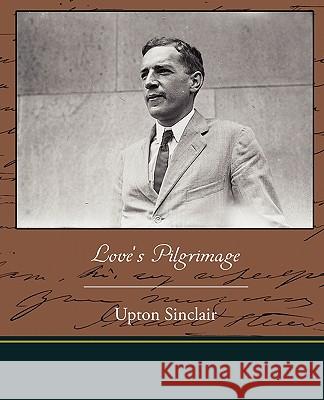Love's Pilgrimage » książka
Love's Pilgrimage
ISBN-13: 9781438526973 / Angielski / Miękka / 2009 / 458 str.
Love's Pilgrimage
ISBN-13: 9781438526973 / Angielski / Miękka / 2009 / 458 str.
(netto: 142,48 VAT: 5%)
Najniższa cena z 30 dni: 148,38
ok. 16-18 dni roboczych.
Darmowa dostawa!
Upton Sinclair (1878 A 1968) wrote over 90 books in several genres. He was considered to be a leading social advocate. Because of his novel The Jungle, which dealt with conditions in the meat packing industry, The Pure Food and Drug Act and the Meat Inspection Act were passed. Love's Pilgrimage was written in 1911. It advocates the new morals and is an extended account of Sinclair's "love program for a poet." An excerpt reads, "Section 1. It was the Highway of Lost Men. They shivered, and drew their shoulders together as they walked, for it was night, and a cold, sleety rain was falling. The lights from saloons and pawn-shops fell upon their faces--faces haggard and gaunt with misery, or bloated with disease and sin. Some stared before them fixedly; some gazed about with furtive and hungry eyes as they shuffled on. Here and there a policeman stood in the shelter, swinging his club and watching them as they passed. Music called to them from dives and dance-halls, and lighted signs and flaring- colored pictures tempted them in the entrances of cheap museums and theatres; they lingered before these, glad of even a moment's shelter. Overhead the elevated trains pounded by; and from the windows one could see men crowded about the stoves in the rooms of lodging-houses, where the steam from their garments made a blur in the air."
Upton Sinclair (1878 Ä 1968) wrote over 90 books in several genres. He was considered to be a leading social advocate. Because of his novel The Jungle, which dealt with conditions in the meat packing industry, The Pure Food and Drug Act and the Meat Inspection Act were passed. Loves Pilgrimage was written in 1911. It advocates the new morals and is an extended account of Sinclairs "love program for a poet." An excerpt reads, "Section 1. It was the Highway of Lost Men. They shivered, and drew their shoulders together as they walked, for it was night, and a cold, sleety rain was falling. The lights from saloons and pawn-shops fell upon their faces--faces haggard and gaunt with misery, or bloated with disease and sin. Some stared before them fixedly; some gazed about with furtive and hungry eyes as they shuffled on. Here and there a policeman stood in the shelter, swinging his club and watching them as they passed. Music called to them from dives and dance-halls, and lighted signs and flaring- colored pictures tempted them in the entrances of cheap museums and theatres; they lingered before these, glad of even a moments shelter. Overhead the elevated trains pounded by; and from the windows one could see men crowded about the stoves in the rooms of lodging-houses, where the steam from their garments made a blur in the air."











